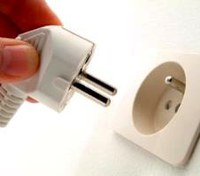(BRUSSELS) – The EU Commission presented Wednesday a ‘toolbox’ of measures to help Europe’s people and businesses tackle the exceptional rise in global energy prices, projected to last through the winter.
With the EU, like many other regions in the world, currently experiencing a sharp spike in energy prices, the ‘toolbox’ in the Commission’s Communication on Energy Prices provides a series of measures the EU and its Member States can use to address the immediate impact of current prices increases, and further strengthen resilience against future shocks.
Short-term national measures include emergency income support to households, state aid for companies, and targeted tax reductions.
The Commission says it will also support investments in renewable energy and energy efficiency; examine possible measures on energy storage and purchasing of gas reserves; and assess the current electricity market design.
Energy Commissioner Kadri Simson said it was important to protect vulnerable consumers and to support European companies.
“The Commission is helping Member States to take immediate measures to reduce the impact on households and businesses this winter,” he said. “At the same time, we identify other medium-term measures to ensure that our energy system is more resilient and more flexible to withstand any future volatility throughout the transition.”
The EU executive says the current price spike requires a rapid and coordinated response. The existing legal framework enables the EU and its Member States to take action to address the immediate impacts on consumers and businesses.
It adds that priority should be given to targeted measures that can rapidly mitigate the impact of price rises for vulnerable consumers and small businesses. These measures should be easily adjustable in the Spring, when the situation is expected to stabilise. Our long-term transition and investments in cleaner energy sources should not be disrupted.
Immediate measures to protect consumers and businesses:
- Provide emergency income support for energy-poor consumers, for example through vouchers or partial bill payments, which can be supported with EU ETS revenues;
- Authorise temporary deferrals of bill payments;
- Put in place safeguards to avoid disconnections from the grid;
- Provide temporary, targeted reductions in taxation rates for vulnerable households;
- Provide aid to companies or industries, in line with EU state aid rules;
- Enhance international energy outreach to ensure the transparency, liquidity and flexibility of international markets;
- Investigate possible anti-competitive behaviour in the energy market and ask the European Securities and Markets Authority (ESMA) to further enhance monitoring of developments in the carbon market;
- Facilitate a wider access to renewable power purchase agreements and support them via flanking measures.
Medium-term measures for a decarbonised and resilient energy system:
- Step up investments in renewables, renovations and energy efficiency and speed up renewables auctions and permitting processes;
- Develop energy storage capacity, to support the evolving renewables share, including batteries and hydrogen;
- Ask European energy regulators (ACER) to study the benefits and drawbacks of the existing electricity market design and propose recommendations to the Commission where relevant;
- Consider revising the security of supply regulation to ensure a better use and functioning of gas storage in Europe;
- Explore the potential benefits of voluntary joint procurement by Member States of gas stocks;
- Set up new cross-border regional gas risk groups to analyse risks and advise Member States on the design of their national preventive and emergency action plans;
- Boost the role of consumers in the energy market, by empowering them to choose and change suppliers, generate their own electricity, and join energy communities.
The Commission says the measures set out in the toolbox will help to provide a timely response to the current energy price spikes, which are the consequence of an exceptional global situation. They will also contribute to an affordable, just and sustainable energy transition for Europe, and greater energy independence.
It adds that investments in renewable energy and energy efficiency will not only reduce dependence on imported fossil fuels, but also provide more affordable wholesale energy prices that are more resilient to global supply constraints. The clean energy transition is seen as ‘the best insurance against price shocks like this in the in the future’.
Communication on Energy Prices
Communication on Energy Prices - background guide



